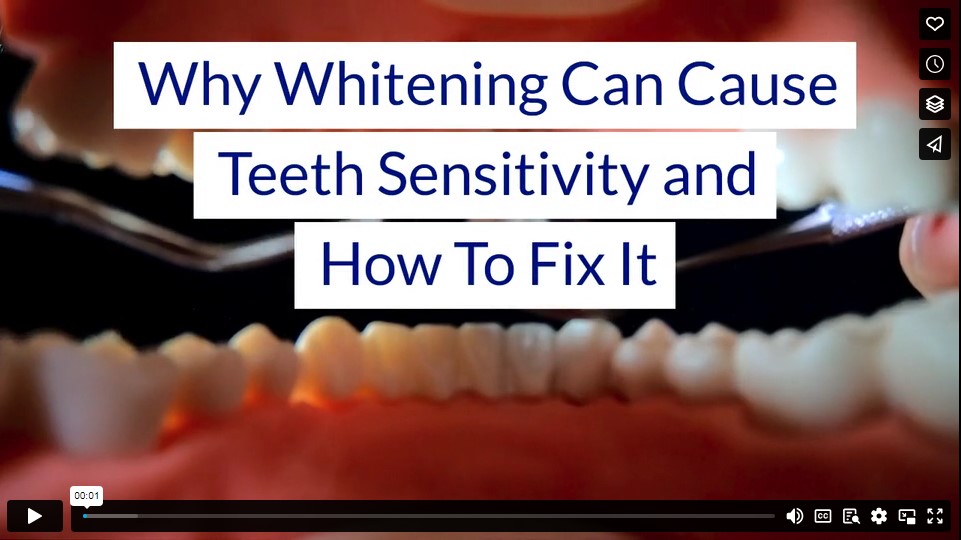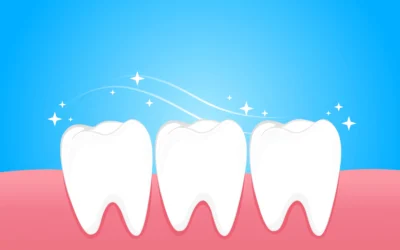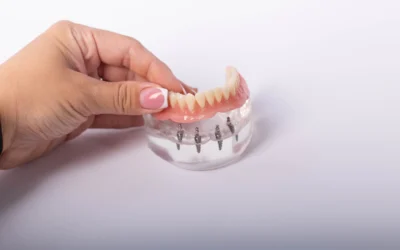Your smile is often the first thing people notice about you. Consequently, a bright, white, even smile can boost self-confidence. There are many products on the market that can whiten teeth, but some people experience pain afterward. What is whitening sensitivity, and what do you do about it?
Tooth Structure
To understand tooth sensitivity, it helps to understand the tooth structure. The outermost layer is called tooth enamel and is the strongest material in the human body. The enamel forms a protective barrier around the tooth to prevent infection and insulate the tooth from pressure, temperature changes, and abrasion.
Under the enamel are thousands of tiny holes called microtubules, which transmit information via the tooth nerve to the brain as you chew. Is what you’re chewing hot, cold, soft, or crisp? It tells your body how hard to chew and if damage occurs.
When the enamel is compromised, you feel a zing through the nerves in your tooth with pressure or temperature changes.
How Does Teeth Whitening Cause Sensitivity?
Most teeth whitening solutions use hydrogen peroxide as their active ingredient. Some people react stronger to hydrogen peroxide than others. Their reaction can stem from various causes, including their dental care routines, genetic predisposition, general health, any history of trauma, diet, and environment.
While several factors can combine to create tooth sensitivity, dentists believe tooth whitening may temporarily weaken the enamel, compromising the microtubules and causing tooth sensitivity.
Does Tooth Sensitivity Mean I Can’t Whiten My Teeth?
No. If you’ve experienced sensitivity after using whitening solutions or are already sensitive to temperature changes, then make sure you discuss your history with your dental care team. They may suggest a whitening solution or treatment protocol that works well for people with sensitive teeth. You may see similar results but more gradually.
What if I Want to Use an Over-The-Counter Product?
Discuss which product to use with your dentist. They may see more success and less sensitivity with some brands over others. In general, the lower the concentration of hydrogen peroxide, the longer it takes, but the less sensitivity you will experience. Your dentist can help you find the balance between efficiency and effectiveness.
If you use a home kit, follow the manufacturer’s instructions. Using the solution longer than recommended to get quicker results is not advisable. Prolonged exposure to hydrogen peroxide can cause chemical burns on your gums.
Does Insurance Cover Teeth Whitening?
Unfortunately, most insurance companies consider cosmetic dentistry medically unnecessary. This includes teeth whitening, gum contouring, tooth shaping, and veneers. You can get dental services without insurance; just be aware this service will be charged separately. Talk to your cosmetic dentist about your options.
What Do I Do if I Experience Whitening Sensitivity?
Don’t worry. Sensitivity usually only lasts a few days. Try some of the following ideas to mitigate symptoms.
- Fluoride– Fluoride is a component of tooth enamel. It will stick to and oxidize on the surface of your teeth, essentially remineralizing the enamel layer. Your dentist has fluoride rinses. You can also get fluoride in toothpaste. Find a sensitive toothpaste with fluoride to promote a quick recovery.
- Toothbrush– While your teeth are temporarily compromised, using a soft bristle toothbrush in your regular dental care routine will preserve the new mineral layers while removing food and debris. Avoid electric toothbrushes that will vibrate and possibly irritate the already sensitive teeth. Be gentle but thorough in maintaining optimal mouth health.
- Temperature– While your teeth are more sensitive to temperature changes, choose room-temperature drinks and foods less likely to irritate the sensitive nerves until the enamel layer is restored.
- Pressure– If your teeth are sensitive while chewing, explore softer food options for a few days. You’ll be back to your regular diet in no time.
What Do I Do if Symptoms Don’t Improve in a Few Days?
For people prone to sensitivity, symptoms may last one to two weeks. If the pain doesn’t diminish or gets worse, schedule a same-day dentist appointment. There may be other reasons for your tooth sensitivity.
Is Going to a Dentist Better Than Using a Home Kit?
Your dentist will take some extra steps that might make your experience better, including:
- Remove tartar buildup and deeply clean your teeth before whitening for an even application.
- Use a retractor to hold your lips out of the way to prevent the solution from irritating them.
- Use a gel to prevent the solution from irritating your gums.
- Adjust the solution concentration or the time the solution is on your teeth to prevent sensitivities while ensuring effective treatment.
While teeth whitening may cause temporary sensitivity, it shouldn’t deter you from having a bright white smile that you feel confident sharing with the world. With a little planning and help from your dentist, you can get a picture-perfect smile with minimal discomfort.
Infographic
A radiant, white smile enhances self-confidence, but some may encounter post-whitening pain. Comprehensive knowledge of whitening sensitivity is crucial. Addressing it not only alleviates discomfort but also contributes to sustaining a healthy and bright smile. Exploring diverse teeth whitening products ensures a personalized approach for individuals seeking both confidence and dental well-being.

Video




